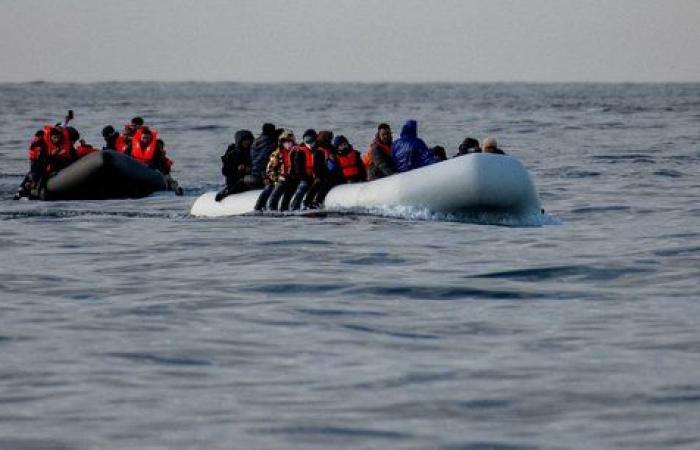
If this shipwreck remains the one which caused the greatest number of victims, the year 2024 broke a sad record. Since the start of the year, at least 70 people have lost their lives or disappeared while attempting the crossing. The deaths don't stop. Worse, their number is increasing.
This year, Rola, a 7-year-old girl, died drowned in a canal in front of her parents and older brothers, without even having reached the English Channel. Maryam, a four-month-old baby, died of drowning. Mansur, a 2-year-old child, died of asphyxiation. Dozens of children, women and men have died on the Franco-British border after fleeing conflict, poverty, persecution, or simply because they were pursuing the hope of a better life on the banks. English.
Not long ago, Bruno Retailleau, newly appointed Minister of the Interior, took indecency to its height during a meeting with his British counterpart, describing the deaths that had occurred over the previous weeks as “harmful consequences.” » of the “effectiveness” of the police.
These deaths are neither the result of chance nor simple collateral damage. They are the direct consequences of migration policies knowingly put in place by the French and British public authorities to make life for exiles on the northern coast impossible.
Indeed, since 2021, the French and British governments have engaged in a costly project of militarization of the border, which has only exacerbated the suffering, made the lives of exiled people ever more precarious and increased the risks. and the dangerousness of crossings, instead of opening legal and safe crossing routes between countries.
Each new repressive measure only worsens the situation
The policy of systematic dismantling of living spaces at work on the northern coast has the sole consequence of increasing the precariousness and vulnerability of the people living in the camps. Kazhall, for example, who lost her life with her three children on November 24, 2021, had been expelled by the police from the Grande-Synthe camp the week before the tragedy. At the same time, the multiplication of obstacles to crossings has the corollary of increasing the dangerousness of crossings and making the smugglers' business ever more lucrative.
These policies do not prevent migration. They simply force people onto ever more dangerous and deadly routes – how far will they have to go? -, and participate in the enrichment of smuggling networks – when will this stop?
Added to this is another injustice: three years after the shipwreck of November 24, 2021, no serious investigation has been completed. Some, promised, were not even conducted, while others were hindered or obstructed. There was neither accountability clarified nor truth revealed. This inaction is an outrage to the families of the victims and a negation of human dignity. Justice must be done so that these people are not just known as numbers, but truly recognized as human beings whose memory deserves respect.
We, humanitarian and human rights organizations, associations and citizens, refuse indifference and demand justice for the missing, dignity for the living and access to legal and safe channels to put an end to these tragedies.
These tragedies cannot continue to accumulate without the militarization of this border being questioned, via an escalation of repressive measures (kilometers of barriers, barbed wire, drones, multiple police patrols, Frontex aircraft) having the consequence of increasing risks to which its crossing is exposed. We support the actions taken by the relatives and families of the victims before the courts so that the truth comes out about the exact course of this deadly night, that all those responsible are identified and that justice is done. We demand a profound and urgent reform of migration policies, based on the principles of humanity and respect for international law, in particular the obligation to rescue passengers from a boat in difficulty and disembark people in a safe place. as soon as possible.
_______
- First signatories:Anne Savinel-Barras
- President, Amnesty International FranceFanélie Carrey-Conte
- General Secretary, La cimade Dr Jean-François Corty,
- President of Doctors of the WorldRaphaël Torlach
- France mission manager, Médecins sans Frontières Yann Manzi,
- Co-founder, UTOPIA 56 Pierre-Antoine Gelot,
- President of the Auberge des Migrants Steve Smith,
- President, Care4Calais Clemence Sonet,
- program manager, Collective Aid Bruno Morel,
- president of Emmaüs France Sylvie Desjonquères-Heem,
- Administrator, Maison Sésame Saad Bouhsina,
- President of the Dunkirk local committee of the MRAP Lily MacTaggart,
- Coordinatrice plaidoyer, Project Play Caroline Cottet,
- President, Refugee Women Center Marie-Charlotte Fabié,
- Director France, Safe Passage International Nathalie Perlin,
- Member of the Board of Directors, Terre d’errance Noémie Cassiau,





